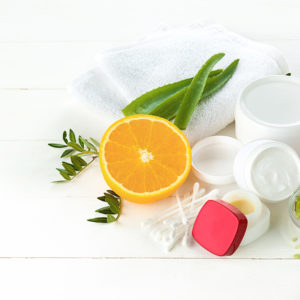A Surprising Link Between Sugar and Alzheimer’s

Finding a definitive cause and cure for Alzheimer’s disease continues to leave scientists frustrated while the number of Americans diagnosed with the disease continues to rise – now approaching six million. Families struggle under the weight of caring for loved ones with the debilitating disease while the science community continues searching for answers.
One recent discovery is interesting and worthy of great consideration – the diabetes connection. It is estimated that thirty million Americans have type 2 diabetes – that’s one in ten people – and the number continues to rise. Scientists are still investigating the potential links, but here is what they know now:
· Type 2 diabetes affects the ability of the brain and the body’s ability to process sugar and produce insulin
· High blood sugar levels cause inflammation throughout the entire body – including the brain. Studies have shown high levels of inflammation in those with Alzheimer’s.
· The damage to blood vessels as a result of diabetes reducing blood flow can lead to vascular dementia which some scientist believes to be a factor in developing Alzheimer’s disease.
While the jury is still out on the link between sugar and Alzheimer’s, one thing is sure – taking the steps necessary to prevent type 2 diabetes will benefit us all in the long run.
Debunking Polycystic Ovarian Syndrome


Polycystic Ovarian Syndrome (PCOS) is an endocrine condition that affects up to 27 percent of women ages 15-44 in which hormone levels are out of balance, throwing off ovulation and causing irregular periods. The main hormones affected are insulin and androgen, also known as the “male hormone” – however, it is also produced at lower levels in women. PCOS is typically characterized by irregular periods, hair growth on the face or chin, hair loss, acne, weight gain, and trouble getting pregnant without medical intervention.
Diagnosing PCOS can be frustrating as there is no one diagnostic tool. Your physician will work to put together all the factual pieces of test results, your family history, and symptoms. Equally frustrating is the fact that there is no cure for PCOS; rather, it can be successfully managed and treated. Living a full and healthy life with PCOS is achievable, but it’s important to listen to your doctor and ignore the fake news! Common misconceptions about PCOS include:
1. It means you’re infertile. The number of your eggs and their quality is not affected by PCOS; however, medication may be needed to help your body release them on a regular basis.
2. It only requires treatment if you’re trying to have a baby. Because of the hormone imbalances caused by PCOS, the risk of diabetes, high cholesterol, and cancer are increased, so it’s important that you seek treatment.
3. It causes cysts on ovaries. While the name may be confusing, PCOS doesn’t involve cysts at all; rather, it causes the growth of follicles.
4. It causes pain. Ovary follicles on women with PCOS only measure between 2 to 10 millimeters, and since they do not rupture, they don’t cause pain as a cyst would.
5. It causes your hormone levels to be that of a man. While PCOS does increase levels of testosterone in women, they are nowhere near the levels of a man.
The Best All-Natural Health & Beauty Ingredients


Coconut oil for hydration and anti-inflammatory benefits. Science has shown that extra virgin coconut oil can suppress inflammation and enhance the skin’s protective function. Use it to moisturize skin and soothe diseases like eczema and psoriasis. Be careful – it can cause acne-prone skin to worsen.
Green tea for anti-aging. People have been drinking green tea for years, but there are also benefits to using it topically. Thanks to the polyphenols. Green tea can soothe the skin after a sunburn and help fight the signs of sun damage.
Oatmeal to decrease inflammation. Grandma might have been right about oatmeal baths for rashes and eczema, but you can’t use just any old oatmeal. The size and quality of the oats matter. Look for products that contain colloidal oatmeal, which is gentle and safe.
Soy to improve collagen production and brighten aging skin. The soybean produces a lot for a small legume – antioxidants, fatty acids, isoflavones, and estrogens or phytoestrogens that help with skin issues for menopausal women. As a woman goes through menopause, the decrease in estrogen the body produces results in skin that has lost its brightness. Topical treatments using products containing soy can help by decreasing pigmentation and improving collagen formation.






